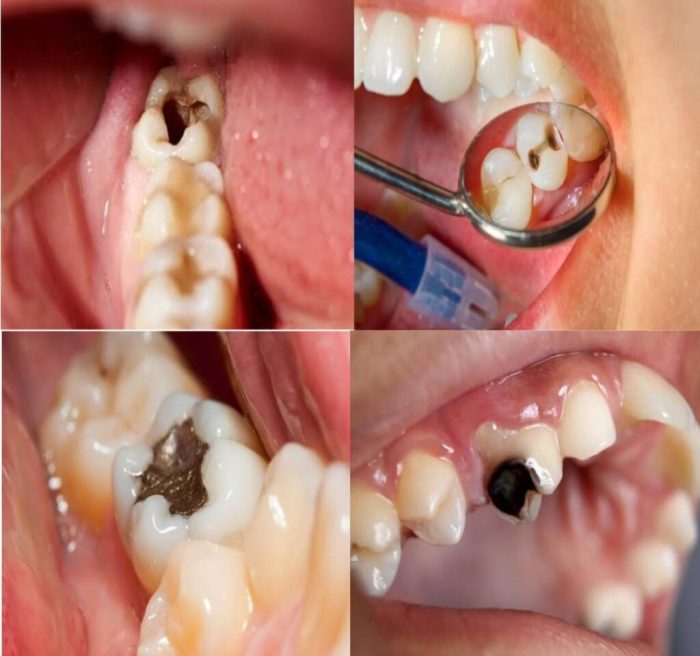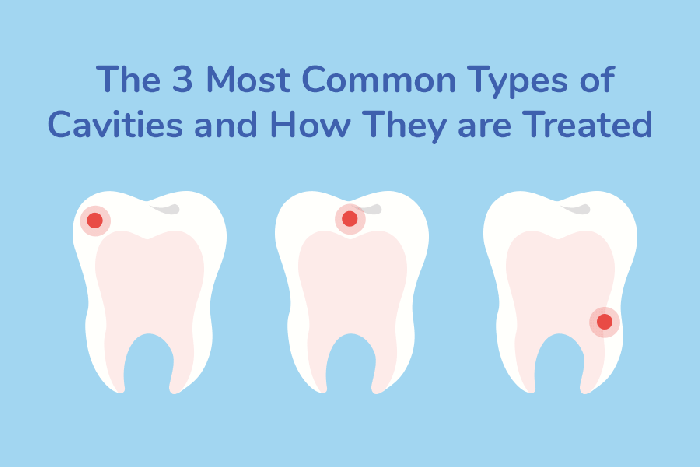Take our “Do I Have Cavities Quiz” and uncover the truth about your oral health. This comprehensive assessment will guide you through common cavity symptoms, risk factors, and preventive measures, empowering you with the knowledge to maintain a healthy smile.
Whether you’re concerned about potential cavities or simply curious about your dental well-being, this quiz is designed to provide valuable insights and actionable advice.
Quiz Overview
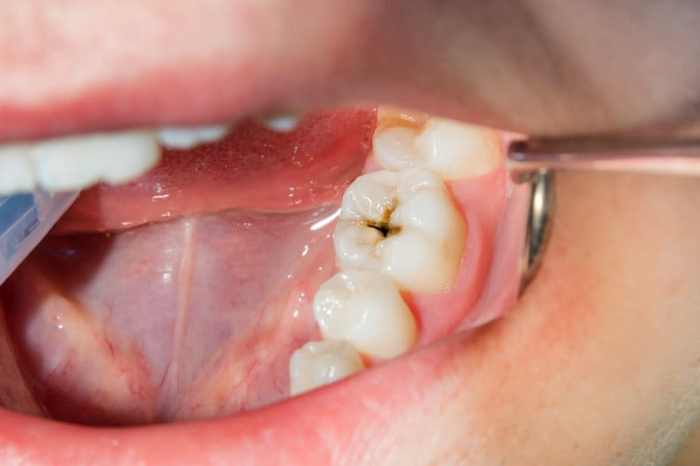
This quiz is designed to provide an indication of whether you may have cavities based on your symptoms and experiences. It is not intended to replace a professional dental examination, but it can serve as a preliminary screening tool to determine if further evaluation is warranted.
If you’re wondering if you have cavities, you can take our quick quiz to find out. In the meantime, do you know what 0.4 of an hour is? Click here to find out. Once you’ve got that figured out, come back and finish our cavities quiz.
The quiz consists of a series of questions that cover common signs and symptoms of cavities, such as tooth pain, sensitivity, and discoloration. By answering these questions, you can get a better understanding of your oral health and identify potential areas of concern.
Target Audience
This quiz is intended for anyone who is concerned about the possibility of having cavities. It is particularly relevant for individuals who experience any of the symptoms associated with cavities, such as tooth pain, sensitivity, or discoloration.
Intended Use Cases
- Determine if you may have cavities and need to schedule a dental appointment.
- Raise awareness about the importance of oral hygiene and preventive dental care.
- Educate individuals about the early signs and symptoms of cavities.
Cavity Symptoms and Risk Factors

Cavities, also known as dental caries, are a common dental problem that affects people of all ages. They are caused by bacteria that feed on the sugars in your food and produce acids that can damage your teeth. If left untreated, cavities can lead to pain, infection, and even tooth loss.
The most common symptoms of cavities include:
- Tooth pain
- Sensitivity to hot or cold
- Dark spots or holes on your teeth
- Bad breath
- A metallic taste in your mouth
There are a number of risk factors that can contribute to cavity formation, including:
- Poor oral hygiene
- A diet high in sugar and processed foods
- Dry mouth
- Tobacco use
- Certain medical conditions, such as diabetes
There are a number of things you can do to help prevent cavities, including:
- Brushing your teeth twice a day with a fluoride toothpaste
- Flossing your teeth once a day
- Eating a healthy diet low in sugar and processed foods
- Drinking plenty of water
- Visiting your dentist regularly for checkups and cleanings
Quiz Questions and Answers: Do I Have Cavities Quiz
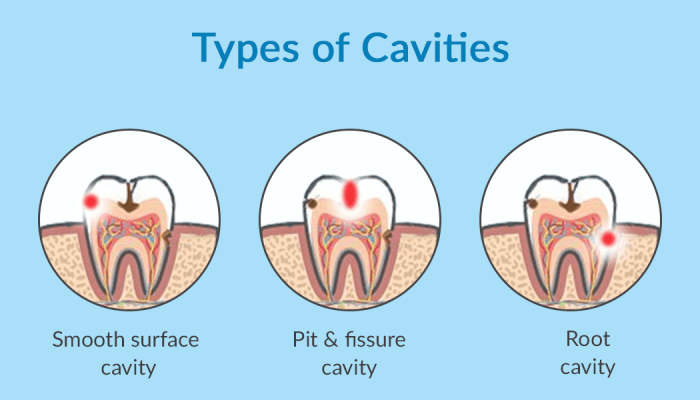
To assess your risk of developing cavities, answer the following questions honestly. The answers will provide insights into your oral hygiene habits and lifestyle factors that may contribute to tooth decay.
Each question is followed by a detailed answer that explains the reasoning behind it. The answers are based on scientific evidence and recommendations from dental professionals.
Brushing and Flossing Habits
| Question | Answer |
|---|---|
| Do you brush your teeth twice a day with fluoride toothpaste? | Regular brushing with fluoride toothpaste helps remove plaque and bacteria, preventing cavities. Fluoride strengthens tooth enamel and makes it more resistant to decay. |
| Do you floss your teeth daily? | Flossing removes plaque and food particles from between teeth, where a toothbrush cannot reach. It helps prevent cavities in areas that are difficult to clean. |
Dietary Habits
| Question | Answer |
|---|---|
| Do you consume sugary drinks and snacks frequently? | Frequent consumption of sugary foods and beverages increases the amount of acid in your mouth, which can erode tooth enamel and lead to cavities. |
| Do you eat a balanced diet that includes fruits, vegetables, and whole grains? | A healthy diet provides essential nutrients that support oral health. Fruits and vegetables contain vitamins and minerals that strengthen teeth and gums. |
Lifestyle Factors
| Question | Answer |
|---|---|
| Do you smoke or use tobacco products? | Smoking and tobacco use reduce saliva production, which can lead to a dry mouth. A dry mouth increases the risk of cavities because saliva helps neutralize acids and protect teeth. |
| Do you have regular dental checkups and cleanings? | Regular dental checkups allow your dentist to detect and treat cavities early on. Professional cleanings remove plaque and tartar that you may not be able to remove at home. |
Additional Resources and Information
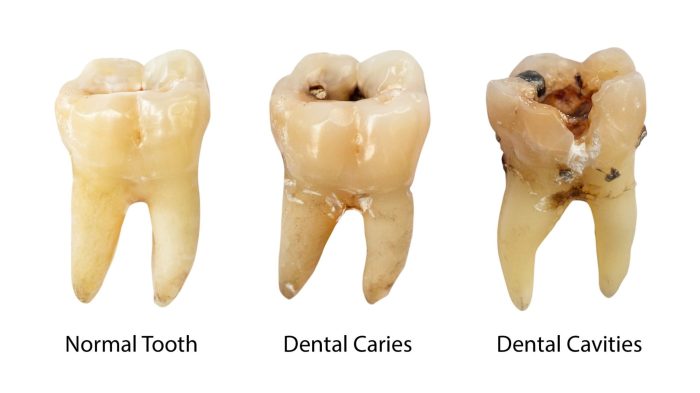
Maintaining good oral health is essential for overall well-being. To learn more about cavities and how to prevent them, refer to these reputable sources:
Links to Reputable Sources, Do i have cavities quiz
- American Dental Association: https://www.ada.org/en/member-center/oral-health-topics/cavities
- National Institute of Dental and Craniofacial Research: https://www.nidcr.nih.gov/health-info/cavities/index
- Centers for Disease Control and Prevention: https://www.cdc.gov/oralhealth/basics/cavities.html
Tips for Maintaining Good Oral Hygiene
Follow these tips to maintain good oral hygiene and prevent cavities:
- Brush your teeth twice a day with a fluoride toothpaste.
- Floss daily to remove plaque and food particles between your teeth.
- Rinse your mouth with an antiseptic mouthwash.
- Limit sugary drinks and snacks.
- Visit your dentist regularly for checkups and cleanings.
Additional Resources
For additional support, consider these resources:
- Academy of General Dentistry: https://www.agd.org/
- American Association of Endodontists: https://www.aae.org/
- Dental Lifeline Network: https://www.dentallifeline.org/
FAQ Summary
What are the most common cavity symptoms?
Toothache, sensitivity to hot or cold, visible holes or pits in the teeth, and brown or black spots on the teeth.
What are the primary risk factors for cavities?
Poor oral hygiene, frequent consumption of sugary foods and drinks, dry mouth, and certain medical conditions.
How can I prevent cavities?
Brush and floss regularly, limit sugary foods and drinks, visit the dentist for regular checkups and cleanings, and consider using fluoride toothpaste and mouthwash.
